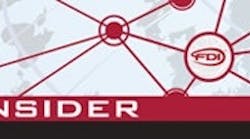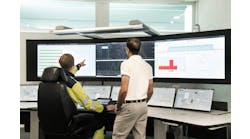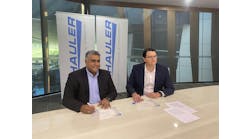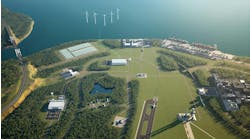FieldComm Group’s goal is to ensure high-quality, market-relevant products and standards are available in the industrial automation space. It turns to experts in the industry to achieve this effort. Members are encouraged to get involved and participate in the various technical working groups, which offer an opportunity to share expertise; direct technological enhancements; network with industry peers; and gain early access to technology developments, marketing strategies, and implementations.
Recent working group accomplishments include: Completion of the Field Device Integration (FDI) Host Conformance Test Specification, update of Electronic Device Description Language (EDDL) Specification (harmonizing with FDI), update of the FDI Specification (harmonizing with EDDL), update of FDI Tools Software, and update of the HART Communications Specification.
[sidebar id =1]FieldComm Group President and CEO Ted Masters praised the contributions of his organization’s working groups. “FieldComm Group Working Groups tackle industry challenges and develop strategies and best practices to help our members compete more effectively,” Master said. “Working group participation is beneficial for those looking for a network of trusted colleagues and interaction with our industry’s most proven experts, providing support and knowledge that cannot be found anywhere else.”
FieldComm Group Working Groups are open to members, liaisons and guests. Each group maintains a roster of active participants. Members that do not register to participate in a Working Group can still monitor activities, attend meetings, engage in consensus-based discussions and access Working Group materials through our shared workspace portal.
Current FieldComm Group Working Groups include:
Advanced Applications Working Group: Charged with investigating and clarifying applications so the appropriate Working Groups can incorporate them into FieldComm Group technologies, the Advanced Applications Working Group accepts a high level description of a particular application identified within the FieldComm community, such as the Technology Working Groups or the Usability Working Group. It then develops technical requirements documents, including high-level architectures that describe the underlying technology or mechanism to support the application across the FieldComm Group technologies and delivers the documents to the appropriate Working Groups.
Cyber Security Working Group: Responsible for dealing with all cyber security aspects in documents and software products owned and/or maintained by the FieldComm Group, as well as its organization and infrastructure, the Cyber Security Working Group develops guidelines for cyber security, provides guidance to FieldComm Group management, and addresses the security of members’ products to the extent they meet the requirements of a FieldComm Group technology.
Foundation Technology Working Group: The Foundation Technology Working Group is dedicated to maintaining, improving, and enhancing existing FOUNDATION Fieldbus technology and associated documentation as all-digital communication system for the benefit the process automation industry, to enhance users’ experience, to provide asset management information and improve operational efficiencies, and to protect the investments end users and suppliers have made.
HART Technology Working Group: The HART Technology Working Group has responsibility for maintaining and managing HART Communications technology, enhancing existing HART Specifications to improve usability, reviewing Physical Layer Specifications maintained by the Physical Layer Working Group, and developing test specifications and procedures for devices and hosts.
Integration Working Group: The Integration Working Group is dedicated to establishing and maintaining worldwide standards for device integration across various industrial communication protocols. The group also develops companion conformance test specifications, test procedures and tool requirements, and helps drive new tools and components to ease adoption and increase industry acceptance of integration technologies. The key goals of device integration technology are cost reduction for all stakeholders and interoperability across systems.
Physical Layer Working Group: The Physical Layer Working Group is focused on the physical aspects of data transmission, including the physical transmission media, mechanical/electrical connection to the transmission media, bit or symbol transmission and reception, modulation, line coding, synchronization, flow control, multiplexing, carrier sensing, collision detection, equalization, and error correction.
Usability Working Group: Dedicated to technology ease of use, clarity and learnability, the Usability Working Group looks to continuously improve and promote usability across FieldComm Group technologies and their applications in member companies. It acts as a bridge between end-user groups (e.g., NAMUR, EUAC); third-party technology organizations; and other FieldComm Group working groups, committees and members.
FieldComm Group will conduct a working group meeting in Berlin, Germany, on July 10-14 in conjunction with an FDI PlugFest. This event is intended to improve the interoperability of FDI Device Packages and FDI Host Systems being developed and released onto the market.
For more information, please visit the FieldComm Group workspace portal.




